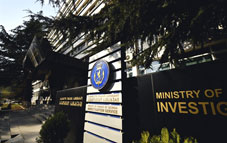
Finance Ministry Targets Atlantic Council Employees in Alleged Tax Evasion Probe Ahead of Elections
By Liza Mchedlidze
Friday, October 25, 2024
In the early hours of October 24, just three days before Georgia's parliamentary elections, the Investigative Service of the Ministry of Finance conducted several searches targeting employees of the Atlantic Council, an American think tank focused on Russian information operations in Georgia.
Giorgi Noniashvili, a politician and co-founder of the Federalist Party, which is not running for the upcoming elections, reported on Facebook that his home was searched by the Ministry of Finance. Officials seized electronic devices belonging to him, his wife Sopo Gelava, and even their minor child. Gelava, an employee of the Atlantic Council, expressed skepticism about the timing of the search, suggesting it was linked to her work on disinformation and Russian influence in Georgia.
Another Atlantic Council employee, Eto Buziashvili, experienced a similar search. Speaking to Formula TV, Buziashvili stated that ministry officials misled her by posing as gas company representatives addressing technical issues. The search lasted nearly two hours, during which she was denied the opportunity to contact her lawyer. Buziashvili emphasized that officials confiscated her work laptop, which is vital for her research on Russian interference in Georgia's elections.
In addition to the searches of individual homes, the Investigative Service also searched the American company Concentrix Georgia, located in Vake Plaza, Tbilisi. Concentrix is a technology and services firm that consults for major brands in over 70 countries.
The investigative service also conducted searches at the home of businessman Valeri Tkeshelashvili in Kutaisi, accusing him of connections to "call centers."
The Ministry of Finance stated that the searches are part of an investigation into alleged tax evasion, fraud, and money laundering involving a company contracted by the Atlantic Council. However, the timing and targets of the searches have sparked concerns over potential political motivations, especially given the Council's focus on Russian disinformation.
The Investigative Service claims to have searched three alleged "call centers." "According to operational information related to the criminal case, searches were conducted based on a judge's decision. The activities of these call centers are connected to the same type of crime under investigation, and we are dealing with finances of a much larger scale," the statement read.
The investigative service reported that its personnel discovered various types of equipment, devices, and documentation containing electronic information during the searches. They indicated that they would periodically update the public on the progress and results of the investigation.

